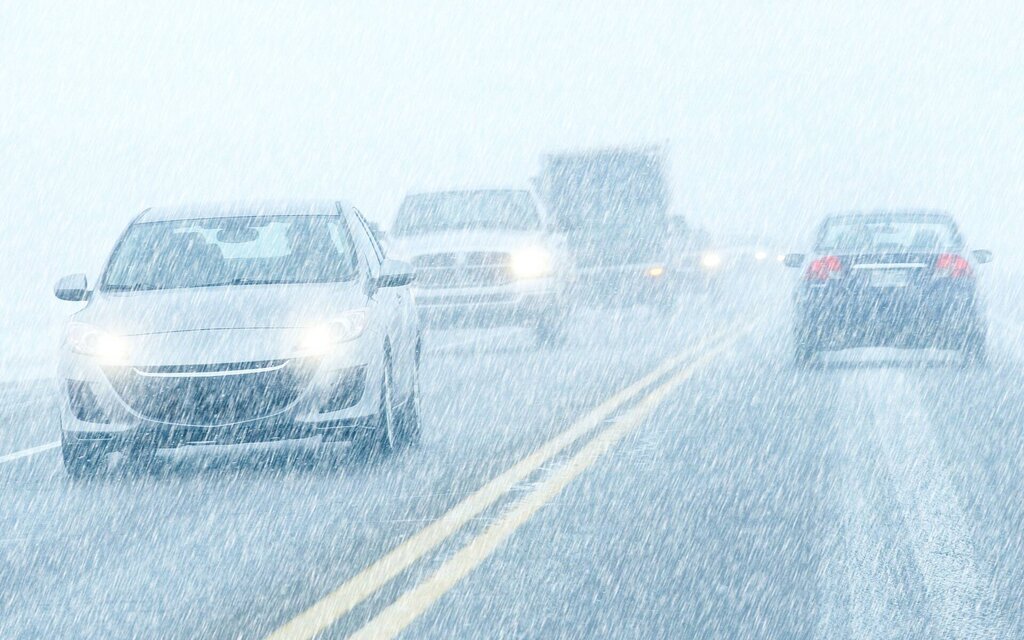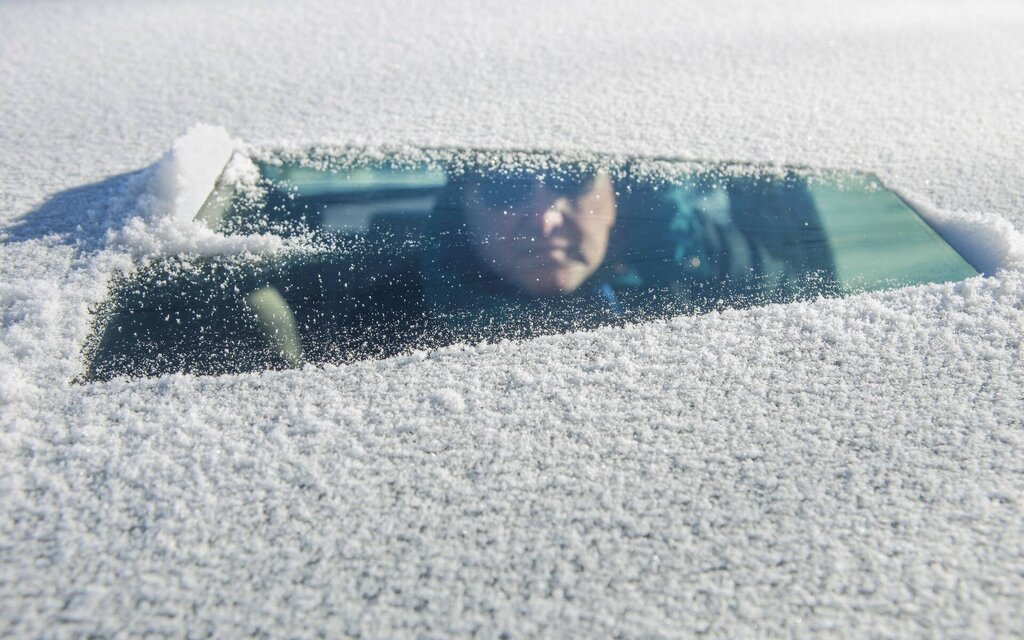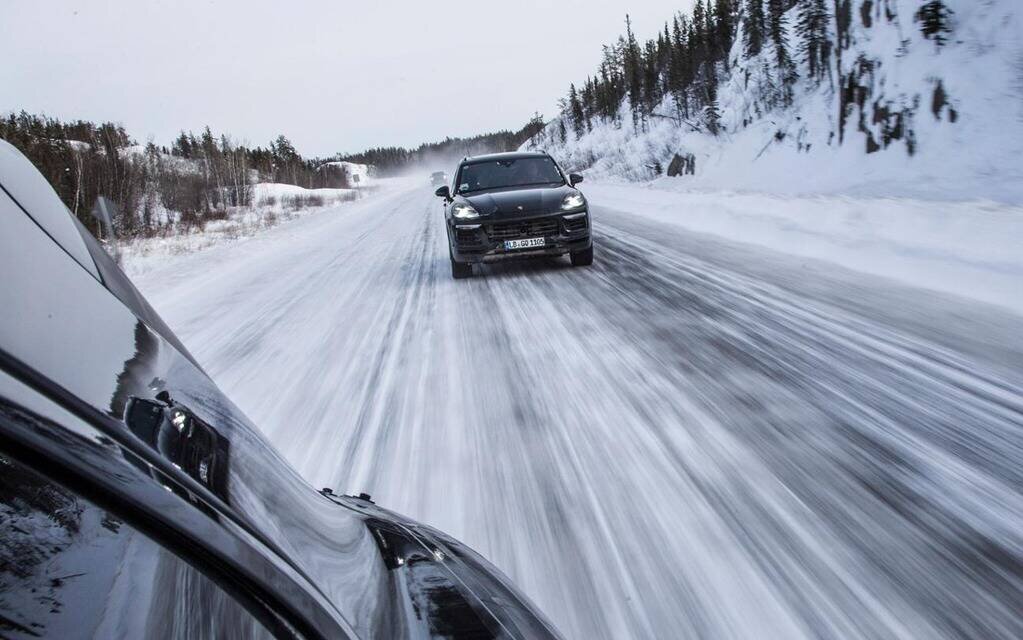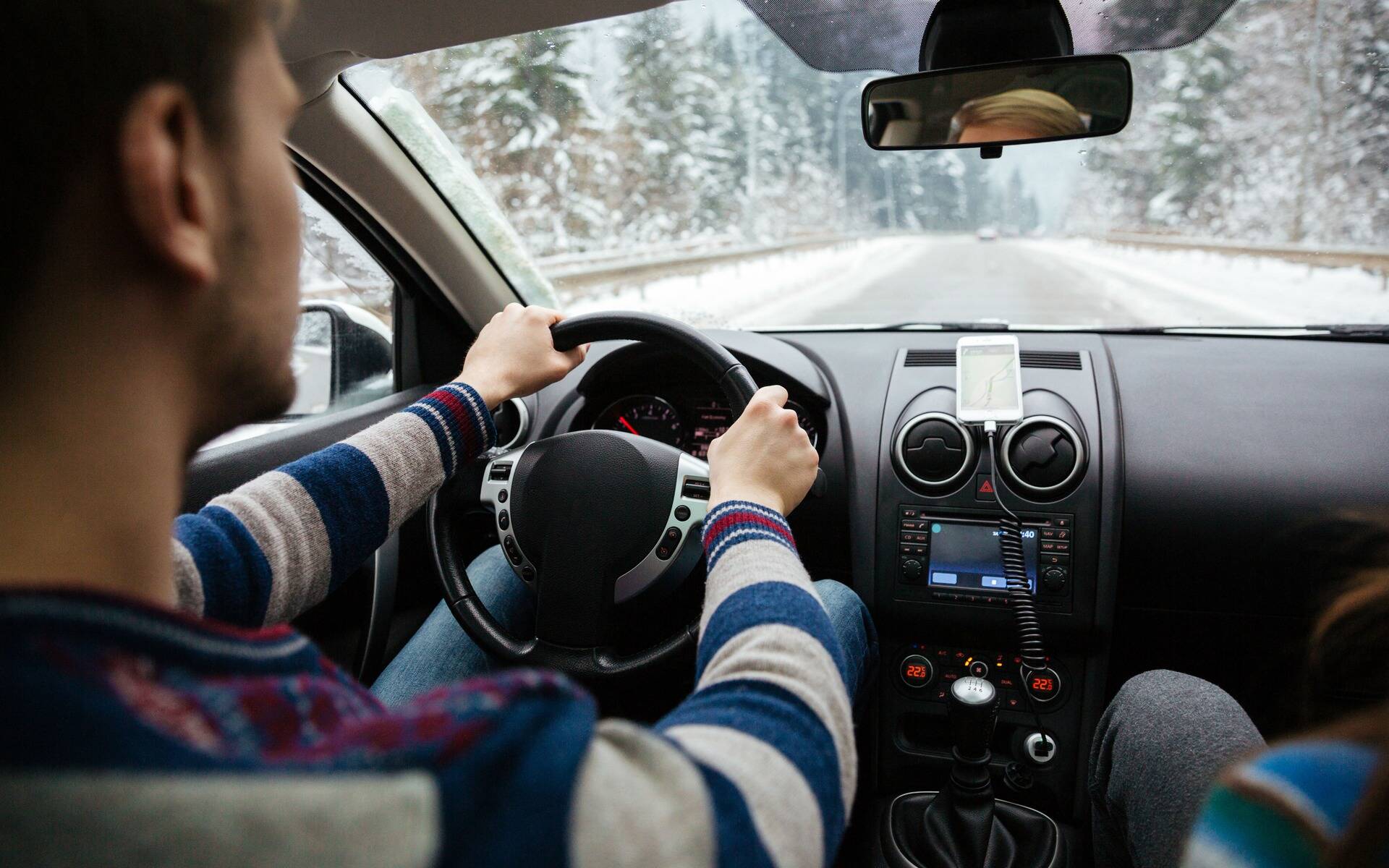10 Winter Driving Tips for When You’re Actually Driving
Winter driving is a joy for some and a nightmare for others. It all depends on the vehicle, road and weather conditions, winter preparedness and your skill level behind the wheel.
Of course, it’s important to use proper winter tires and have your car battery checked before the cold season. You can also take advanced driving lessons in controlled environments that will teach you safe techniques you can and should master.
- Also: Survey: 72 Percent of Canadian Drivers use Winter Tires
- Also: Top 10: Best Winter Tires for Cars and Small SUVs, 2021-2022
Below are 10 winter driving tips for when you’re actually driving on the road…
1. Slow Down
Modern vehicles can be deceptively fast. Always keep an eye on the speedometer and abide by the posted speed limits. You should also make a point of reducing your speed at all times to give yourself more time to react.

2. Maintain Longer Distances
During winter, the roads are cold and slippery, so you need to maintain a greater distance between you and the vehicle in front of you (equal to about five seconds or more), once again to improve reaction times.
3. Watch Your Surroundings
Always be mindful of vehicles around you. If you need to change lanes, know how much space you have. It will probably take more than what you’re used to in the summer. In rural areas, pay attention to the sides of the road in case a wild animal suddenly crosses your path.
4. See Clearly at All Times
During winter, the dark sets in more quickly. Don’t wait to turn your headlights on—low beams and high beams. If they appear to be weaker than usual, it’s possible the lenses are covered in snow or slush. Pull over and go clean them. Same thing with your windshield wiper blades if they start to be less effective due to snow or ice buildup.

5. Don’t Rely on AWD
Having all-wheel drive in winter is fantastic, but it shouldn’t instill a false sense of security. Unless you’re perfectly familiar with your car’s handling characteristics, you should adapt your driving instead of relying on the AWD system. No technology replaces a driver’s good judgement.
6. Minimize Distractions
Loud or chatty passengers, the radio, gadgets in the car, your cell phone, a quick lunch on the go… These are all distractions that prevent you from focusing on the road ahead. Nothing is more important than watching the road when you’re driving, especially during winter.
7. Beware of Bridges and Overpasses
A road may appear dry, yet be covered in so-called black ice. Invisible on the road surface, this ice usually forms when the temperature is hovering around the freezing point. Bridges, overpasses and underpasses are all areas where these nasty patches of ice can spell trouble for the inattentive motorist. Be careful.

8. Forget Cruise Control
There may be black ice or unplowed snow on the highway ahead. These conditions could result in losing control of the vehicle. When cruise control is activated, drivers tend to be less attentive. Also, the system may not react as quickly as you can if you feel a loss in traction.
9. Know How to Stop Skidding
To stop the front wheels from skidding (understeer), ease up on the accelerator or brake pedal and steer the wheels in the direction of the turn, while looking in the direction you want the vehicle to go. Avoid sudden moves. If the rear end of the vehicle goes sideways (oversteer), turn the front wheels in the direction in which the rear end has started swinging, while of course looking in the direction you want to go.
10. Stuck? Now Get Out
If you end up stuck in the snow this winter, don’t panic. Place sand or kitty litter under the drive wheels—unless you have traction aids, which are even better. Next, straighten the wheels and accelerate slowly. Be careful not to spin the tires because you likely will dig deeper into the snow. If need be, use a small shovel to remove snow.











